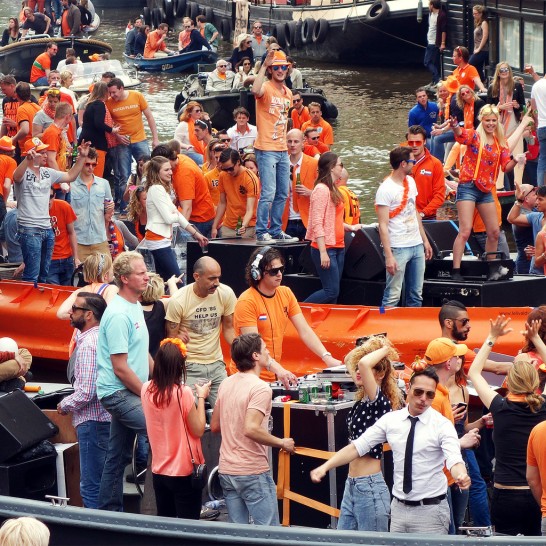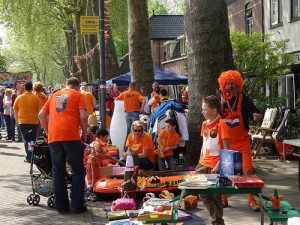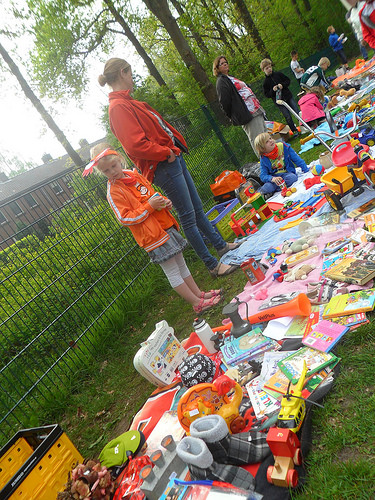“So, what is this King’s Day all about?” a foreign banker asked a local Dutch person after moving to the Netherlands. “Well,” the Dutch person responded, “first we sell each other lots of old crap and then we all get extremely drunk together.” “Ah, so its like Friday?” This is a classic joke about explaining King’s Day to outsiders and of course, totally ignoring the true beauty of one of the strongest traditions the Netherlands has. From 1898 until our former Queen, now Princess Beatrix, left the throne in 2013, this day was called Queen’s Day. But since the coronation of Willem Alexander, her son, that same year, it’s been called King’s Day. It’s a symbolic day on which people celebrate the Dutch identity by displaying the nation’s flag and dressing completely in orange, a symbolic color for the Netherlands.
Koningsdag - as it is called in Dutch - is also the only day of the year on which you are allowed to sell goods on the street without a permit and without paying the value-added tax. Thus, on this day the Netherlands transforms into one big flea market, with Dutch people all over selling their secondhand items on the street.
Historically, the Dutch are known for their trades skills: during the Golden Age, Holland became one of the richest countries in the world while sailing the seas and trading with foreign countries. And on this annual nationwide vrijmarkt (free market), one catches a glimpse of the past: watching people selling old teddy bears, dresses and dolls (with or without both arms still on), one sees the true salesman come alive, as he/she shouts: “three for the price of one!” or maak me los (slang for “Help me get rid of all my junk.”) On this day, bargaining is a big part of the game, and even in the specially-designated children’s areas, you’ll find everything from homemade cupcakes and drawings to compliments and stars ‘for a very, very special price.’
Estimations are that on the average one in five Dutch residents plans to sell their things during Koningsdag and expects to earn at least 100 euro per person (which makes up a total turnover of 290 million). The ING bank predicted that over half of the Dutch population buys at the Vrijmarkt spending at least 28 euro each.
On Koningsdag, people don’t just sell second hand stuff or compliments. The Dutch also make money by playing music on the streets, sometimes so terribly it makes one’s toes curl and with a sign that says: “For 1 euro, I will stop for 15 minutes.” People also sell handmade shirts, necklaces and baby clothes. They’ll write you a poem for 5 euro as long as you give them a topic. On this day people make money with hugs for a euro, act out the games Tetris or chess, and let you throw rotten tomatoes and eggs at them for only 2.50. There are no limits to what can be sold! And although every year year it gets more creative, the traditional grab bag can always be found.
The epicenter of King’s Day in Holland is in Amsterdam with around 300,000 people from outside of Amsterdam, dressed in orange, visiting every year.
So if you have some old stuff, a skill or nice tricks to sell, get your orange wig on and jump on the first plane to Amsterdam, but please make sure you’ve got the date right! (King’s Day is now held annually on April 27th!)
Photo Credits: Jannes Glas. via Compfight cc; harry_nl via Compfight cc; Henk-Jan van der Klis via Compfight cc


